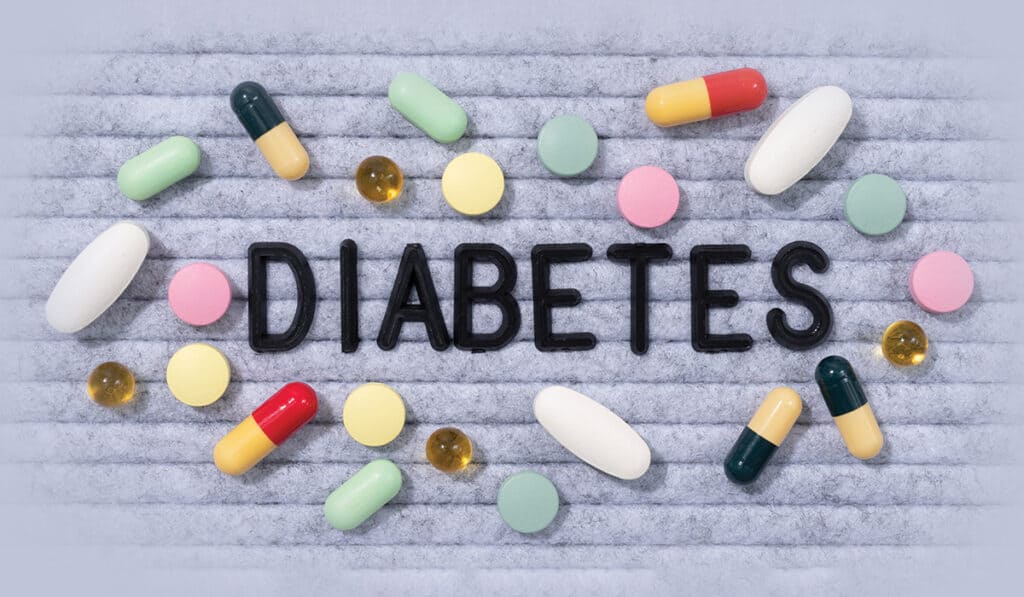EVERYTHING ABOUT DIABETES – MANAGE WELL, LIVE WELL
Diabetes Management- Introduction
Diabetes is a silent killer, Diabetes Mellitus refers to a group of diseases that influence the way the body uses blood sugar or glucose. Glucose is an important source of energy for cells that form muscles and tissues. It is also the most important source of brain fuel. The main cause of diabetes varies by type of diabetes. But whatever kind of diabetes you have, it can lead to excess sugar in the blood. High blood sugar can lead to serious health problems. Let us know more about diabetes and diabetes management.
What is Diabetes?
In Medical terms, Diabetes Mellitus commonly called diabetes is a metabolic disease that causes a rise in blood sugar levels. The Insulin hormone is responsible for moving sugar from the blood into cells to be stored or used for energy. In diabetes, your body either does not make enough insulin or cannot effectively use the insulin which is produced. This insulin hormone is produced by Pancreas in your body. High blood sugar levels untreated by diabetes can damage nerves, eyes, kidneys, and other organs. But by educating yourself about diabetes and taking steps for diabetes management and prevention of diabetes, you can protect your health.

Causes & Symptoms of Diabetes
General symptoms of diabetes are
- Increased hunger
- Increased thirst
- Weight loss
- Frequent urination
- Blurry vision
- Extreme tiredness
- Wounds that do not heal
Treatment of Diabetes – Diabetes Management
Depending on the type of diabetes you have, the surveillance of blood sugar, insulin, and oral medicines can be part of the treatment. Eating a healthy diet, staying on a healthy weight, and obtaining regular physical activity, are also important parts of diabetes management.
Insulin and other diabetes medications are designed to lower blood sugar when diet and exercise alone aren’t enough to control diabetes. The timing and size of the dose determine the effectiveness of these drugs. Medicines you take for conditions other than diabetes can also affect blood sugar levels.
- Store insulin properly. Insulin that has not been stored correctly or has passed its expiration date may not be effective. Insulin is particularly sensitive to extreme temperatures.
- Report any problems to your General Physician or diabetologist. If your diabetes medications cause your blood sugar to drop too low or keep it high for a long time, the dosage or timing may need to be adjusted.
- Be careful with new drugs. If you are considering an over-the-counter drug or if your doctor prescribes a new drug for you to treat another condition, such as high blood pressure or high cholesterol, ask your diabetologist or pharmacist if the drug may affect your blood sugar levels. Sometimes another medication may be recommended. Always check with your doctor before starting any new over-the-counter medication to find out how it may affect your blood sugar.
Diabetes Management
An important part of diabetes management along with your overall health is maintaining a healthy weight through a healthy diet and exercise.
Diabetes & Diet
There is no specific diet for diabetes. One should focus on a diet with more fruits, vegetables, lean proteins, and whole grains. These are foods that are high in nutrients and fiber and low in fat and calories. No saturated fats, refined carbohydrates, and sweets. In fact, it’s the best meal plan for the whole family. They should be counted as part of your meal plan.
However, a registered dietitian can help you create a meal plan that fits your health goals, dietary preferences, and lifestyle. This will likely include carb counting, especially if you have type 1 diabetes or are taking insulin as part of your treatment. Let us know more about diabetes management related to food
Best Food for Diabetes Management
The food that can help in the prevention of diabetes is
- Whole grains, such as brown rice, oatmeal, quinoa, millet, and baked sweet potato Items made with whole grains and no (or very little) added sugar.
- Fresh veggies, eaten raw or lightly steamed, roasted, spinach.
- Fresh fruits especially citrus fruits Plant-based proteins such as beans, nuts, seeds, or tofu.
- Fish and seafood. Chicken and other poultry food like eggs and low-fat dairy.
- Dairy food 1% or skim milk, Low-fat yogurt, Low-fat cottage cheese, and Low-fat or nonfat sour cream are the best choices.
- Sugarless tea with or without a slice of lemon, Light beer, small amounts of wine, or non-fruity mixed drinks, Coffee, black, or with added low-fat milk and sugar substitute
Worst Food For Diabetes Management
- Processed grains, such as white rice or white flour, Cereals with little whole grains and lots of sugar, White bread, and French fries.
- Canned vegetables with lots of added sodium, Veggies cooked with lots of added butter, cheese, or sauce, pickles
- Sweet fruits like mango, banana, and custard apple should be avoided.
- Fried meats, Higher-fat cuts of meat, such as ribs, Regular cheeses, Deep-fried fish, Deep-fried tofu, and Beans.
- Whole milk, yogurt, cottage cheese, ice cream.
- Regular sodas, beer, fruity mixed drinks, wines, tea with sugar, Coffee with sugar and cream, Flavored coffees and chocolate drinks, Energy drinks
Conclusion
Prevention is better than cure. Diabetes is a rapidly growing health challenge and a potential epidemic in low- and middle-income countries such as India. The number of diabetes cases in India is projected to be 69.9 million by 2025, with an overwhelming majority still undiagnosed. Diabetes care requires coordination between all levels of health systems. Above all, it is guided by the patient’s knowledge, attitudes, and perceptions regarding awareness, treatment, and adherence to recommendations. Although diabetes is a serious health problem, you must take the necessary precautions, such as making sure that you or a member of your family are not at risk. Along with some of these natural ways to treat diabetes.

 Next Post
Next Post